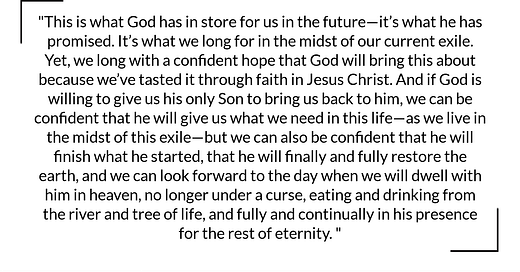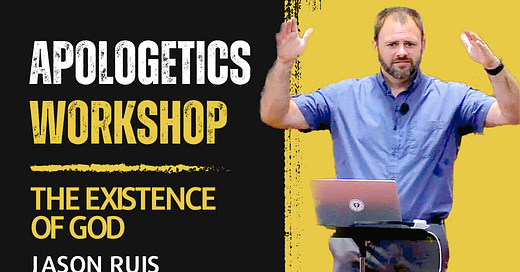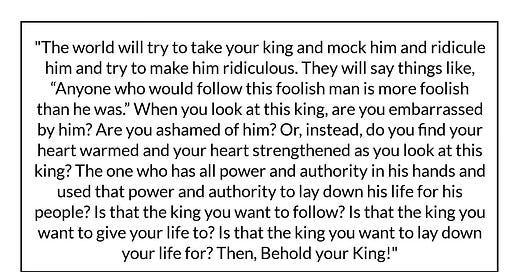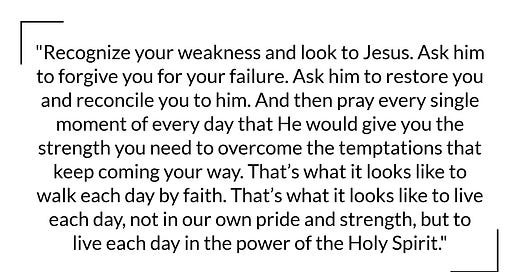
[Read Genesis 3:22-24]
Although I never thought of it this way, I grew up a wanderer. We moved a lot. The short version is that I was born in Minnesota, moved to Alaska, back to Minnesota, to Montana, back to Minnesota, back to Montana, back to Minnesota, with quite a few moves in between. I changed schools four times and lived in over 20 different homes (I stopped counting). So, it’s always complicated when someone asks me where I grew up because I kinda grew up all over the place. And, since we moved all over the place, I really didn’t associate any singular place or location as home. My mom always talked about how we could make any place feel like home because home was being with family.
Because of all this, I never really remember feeling homesick growing up…until I went on my trip to Turkey and Greece. I remember laying in bed that first night after we arrived in Turkey and coming to the realization that I was literally on the other side of the world from my family. And, even though I was surrounded by people, I felt very alone and had this ache in me to get back home to my family.
The other moment in my life when I felt homesick was shortly after my Turkey trip, when our family spent 5 weeks in the Dominican Republic for my seminary internship. Again, I remember laying in bed that night thinking, “What in the world did I just get my family into?” Especially the first week in the Dominican Republic, we experienced some pretty significant culture shock. There are lots of elements that go with culture shock, but the baseline element of culture shock is that you have this strong feeling that you don’t belong—that you’re not home. Everything is different. You don’t understand anything. You don’t know how to do anything. You feel extremely helpless because you don’t belong and you’re not home. Although we eventually settled in and enjoyed our time and ministry work there, we still continually had a longing to be home. It’s very possible that when we finally arrived at our home in Minnesota, I kissed the ground…lol.
This is what we’re going to be talking about throughout this season of Advent. Advent is this season that leads up to Christmas. The word Advent means “coming,” which is why we celebrate it leading up to Christmas—when Jesus came to earth. It’s also a season of waiting. It’s a season where we remember the way in which God’s people waited for their Messiah to come, waited for Jesus’ birth so that he could bring deliverance and salvation. Yet, it also looks beyond the way God’s people waited for Jesus’ first coming to the way in which we wait for Jesus’ second coming. So, this is a season of waiting and longing for the coming of Jesus.
What I want to remind us of this morning, and throughout this series, is the reason why we’re waiting and longing. In particular I want to remind us what we’re longing for. What is this yearning inside of us? That answer to the question can be answered in a variety of ways, but we’re going to look at it from the angle that we’re longing for home. We’re longing to be restored to communion with God. We’re longing for the restoration and fulfillment of God’s promises. In many ways, we’re longing to return to the garden, but we can’t.
In many ways the first three chapters of Genesis can be summed up with a plot line of a home being created and a home that is lost. It’s a story of God creating this beautiful home from nothing. God separating out light from darkness, separating land and sea and sky, then filling those places with abundance of plants and animals. God is building a home. Then he creates his people and places them in that home and gives them a job to do: “Be fruitful and multiply and fill the earth and subdue it, and have dominion…” (Genesis 1:28, ESV). He gives them everything they need to work in this home and everything they need to do what he’s called them to do.
When we get to chapter two, the story is told from a different angle and we’re given a slightly different image, not that of a home (per se) but more of a temple. Much of the language used to describe the garden and the tasks given to Adam and Eve use the language of priests in the temple. The temple is the place where God dwells, where he is present. Of course, we know, and they knew, that God fills the earth and is present everywhere, but his presence is made known in different ways and different places. So, the temple was a place where God’s presence was made known to his people in a powerful way. Yet, the picture given of the garden is that it was the temple, the place where God’s presence was felt in a powerful way.
I don’t think these two images are in conflict with one another, I think they are very complimentary. It’s a picture of God creating a home and filling it with his presence—a place where His people would work and worship at the same time, a place where they would be constantly aware of who God is and what he has done, a place they would ultimately feel at home in the presence of God.
Yet, we know they gave into temptation, ate from the only tree God told them they could not have, and there were some consequences to those actions. This morning, we’re focusing on one small portion of those consequences—actually the portion that is often overlooked. At the very end of chapter three we read, “Then the LORD God said, “Behold, the man has become like one of us in knowing good and evil. Now, lest he reach out his hand and take also of the tree of life and eat, and live forever—” therefore the LORD God sent him out from the garden of Eden to work the ground from which he was taken. He drove out the man, and at the east of the garden of Eden he placed the cherubim and a flaming sword that turned every way to guard the way to the tree of life.” (Genesis 3:22–24, ESV). Because of their sin and rejection of God, they were kicked out of their home.
Many people want to talk more about the Tree of Life. Their interest is piqued when they read, “Now, lest he reach out his hand and take also of the tree of life and eat, and live forever—” (Genesis 3:22, ESV). People want to know if this was a special tree—or a magical tree—that would have caused Adam and Eve to live forever had they kept on eating it. Yet, most commentators do not believe that to be the case. Rather, this tree functioned more like a sacrament—kinda like the Lord’s supper. It was a physical object that pointed to a spiritual reality—it was a sign and a seal of a spiritual reality. So, when they ate from the Tree of Life, it was a continual sign and seal that God had given them life—even eternal life. Yet, once they had lost that eternal life because of sin, they also would lose the thing that gave them hope and comfort in that reality. Calvin says, “In short, God resolved to wrest out of the hands of man that which was the occasion or ground of confidence, lest he should form for himself a vain hope of the perpetuity of the life which he had lost.” (Calvin, 184). God removed them from the tree so that they would no longer put their hope in something that was no longer true.
But really, the biggest punishment that came with being kicked out of the garden not being removed from the Tree of Life, was the fact of being removed from the very presence of God. That was the worst part of it all. They were kicked out of the temple—removed from God’s presence. And, to top it all off, there were angels placed in front of the gate with swords, preventing Adam and Eve from ever returning. They were stuck “east of Eden,” kicked out of their home, away from the presence of God, in a world that had been changed forever—they were in exile.
If that was the full story, or the end of the story, that would be a very gloomy, stark picture. But there is more to the story, isn’t there. While God doesn’t downplay the significance of what they’ve done—and he doesn’t downplay the consequences of their rebellion—he continues to show them grace in the midst of it all. Prior to this morning’s passage, we’re told that God clothed them and gave them a promise. That promise was that this would not last forever. There would be a continual battle between the serpent—Satan—and the people of God, but eventually God would win the battle. He didn’t leave them naked and vulnerable to wander in the wilderness, but clothed them and gave them a place to live east of Eden. And, in giving them the future promise, it was a reminder that they were not hopeless apart from the Tree of Life, but that God was going to do something different to give them eternal life. So, even though God’s people will have to live in this situation of being kicked out of the garden, away from God’s presence, they also knew that God was still with them and that God was working on fixing the situation.
There’s something powerful about living in this tension. On the one hand you know that the beauty of what was is gone and has been taken away, never to return. If that was all you knew, you would live in complete despair and hopelessness. But God has promised something greater to come, which prevents you from living in despair, but gives you hope in what’s to come. Yet, you also very clearly realize you’re not there yet. You’re still in the brokenness of this world, still dealing with the havoc of sin. You know that it wasn’t created to be this way, and that it won’t always be this way, but we’re still in the middle of it. That has us living in a sort of tension doesn’t it? It’s this place of longing—waiting—longing for things to be made right again fully, longing to live in the world in which God created, longing to return home to God’s presence.
I think it’s important to know that this is where we are in the story of Redemption. We’re still in exile. We’re still east of Eden. We’re still living in the midst of the consequences of sin and death and brokenness and chaos that has been created by sin. This is not the way God created the world to be and to function.
In this situation, there are a couple different temptations to fall into. On the one hand, there’s a temptation to look around at everything that is wrong with the world, all of the brokenness and chaos and destruction, and find yourself hopeless and in complete despair. I realize there are some people who struggle with that temptation, but I think there’s a much greater temptation that most of us struggle with. It’s the temptation to think we’re not in exile, but we’re in the Promised Land. Because we’ve been blessed with so much comfort and abundance, we often think that we have arrived and that this is the way things were created to be. As a result, any form of longing for what God has promised in the future is deadened and often gone because we’re satisfied with the way things are right now. That’s a very dangerous place to be.
I’m often very convicted of this reality myself. Last week I spoke about faith from Hebrews 11. As I’ve spent a lot of time studying that chapter over the last decade, I’ve been convicted of one major teaching in that chapter. Hebrews 11 gives a summary description of all these heroes of the faith and what motivated them to do such powerful acts of faith throughout their lives. It says, “These all died in faith, not having received the things promised, but having seen them and greeted them from afar, and having acknowledged that they were strangers and exiles on the earth. For people who speak thus make it clear that they are seeking a homeland. If they had been thinking of that land from which they had gone out, they would have had opportunity to return. But as it is, they desire a better country, that is, a heavenly one. Therefore God is not ashamed to be called their God, for he has prepared for them a city.” (Hebrews 11:13–16, ESV). What motivated them to life with such a powerful faith? To connect this with last week: They were certain that God had something better in store for them beyond this life. They were certain that in this life they were in exile, and that created a longing in them for a better home that was to come—a heavenly home created by God and prepared for them, a return to home in the presence of their God. And because they were certain of that reality, they were willing to sacrifice much and endure much suffering by faith. An aspect of their true faith involved a longing for their heavenly home.
When was the last time you lived with that kind of longing? That’s convicting, isn’t it? It’s even more convicting to me as I read books and sermons and writings throughout history. They speak about this longing all of the time. They were constantly feeling this homelessness of exile, longing for the day when they would be fully restored into God’s presence. I’ve even mentioned that John Calvin said this was an essential part of the Christian Life—to be meditating upon and longing for the future life in the presence of God. Yet, because of our comfort and affluence, it’s often not there in our lives. So, we need to ask God to open our eyes to what he has in store for us and to create this longing in us so that we would live with a proper tension in our current exile.
Now, there is an aspect of our exile that can be restored in this life. As I’ve already mentioned, a massive part of our exile is a separation from God. And the promise that God gave to Adam and Eve in the garden is that someone would be born of woman, who would come and defeat Satan so that God’s people could again enter his presence. That’s why we celebrate Christmas. Jesus Christ, the Son of God, took on flesh, was born of a woman, and defeated Satan through his life, death, and resurrection. He did this so that we could be restored into the presence of God. Apart from Jesus, you will continue to live separated from God, away from his presence, wandering around in a hopeless exile. Yet, when we look to Jesus Christ in faith, trust him and give our lives to him, we’re cleansed and forgiven of our sins, and we’re united to Him and restored into God’s presence.
This is such a beautiful thing, yet it’s not the final beautiful thing. There’s more for us. While it’s true that we’ve been restored into God’s presence, that hasn’t happened fully, has it? While we’ve been forgiven and cleansed of our sin, that hasn’t happened fully, has it? We still continue to sin and separate ourselves from God. The fullness of this promise is still on the horizon, which means we’re still in exile, which means we still have some longing for what God will fully do as he restores us and creation.
Listen to this picture at the end of the book of Revelation: “Then the angel showed me the river of the water of life, bright as crystal, flowing from the throne of God and of the Lamb through the middle of the street of the city; also, on either side of the river, the tree of life with its twelve kinds of fruit, yielding its fruit each month. The leaves of the tree were for the healing of the nations. No longer will there be anything accursed, but the throne of God and of the Lamb will be in it, and his servants will worship him. They will see his face, and his name will be on their foreheads. And night will be no more. They will need no light of lamp or sun, for the Lord God will be their light, and they will reign forever and ever.” (Revelation 22:1–5, ESV). Notice anything about that picture? It’s a picture of the garden restored—of Paradise restored. The river that flowed through Eden is back and is the river of life. The tree of life is back and God’s people are no longer banned from it, but will eat from it throughout eternity. The curse has been removed throughout all the earth. And, the most important part of all, God’s will be there and his presence will fill it completely, and we will bask in his presence throughout eternity.
This is what God has in store for us in the future—it’s what he has promised. It’s what we long for in the midst of our current exile. Yet, we long with a confident hope that God will bring this about because we’ve tasted it through faith in Jesus Christ. And if God is willing to give us his only Son to bring us back to him, we can be confident that he will give us what we need in this life—as we live in the midst of this exile—but we can also be confident that he will finish what he started, that he will finally and fully restore the earth, and we can look forward to the day when we will dwell with him in heaven, no longer under a curse, eating and drinking from the river and tree of life, and fully and continually in his presence for the rest of eternity.












I loved this today. The only hang up I have is when you said, this is why we have Christmas.
From what I can see we only have Christmas and Easter because Constantine wanted to keep the people serving pagan gods. So the winter solstice became Christmas. Celebrated 2-3 months after the likely birth of Christ. (Bible says he family went for census around the new year. Jewish new year in the middle of the fall. NOT exactly on the ancient day people have traditionally celebrated the winter solstice and in the exact same way. Only difference is we have tagged it (in error) Jesus birthday. I am not sure how to move with these convictions. Especially since I’m convinced but when I mention it people’s eyes become angry and seem threatened. Like they love the holidays more than Christ himself and will gladly choose ignorance over truth if it doesn’t affect their tradition. However if our traditions are identical to the pagan ones and sold to us under false pretenses, when we see this shouldn’t we run? Or do we fully engage in pagan practices and celebrate the high holiday on the same day and with the same artifacts like the tree and the lights. Like the gift giving and Santa Claus.
Sorry I just went off on a tangent.